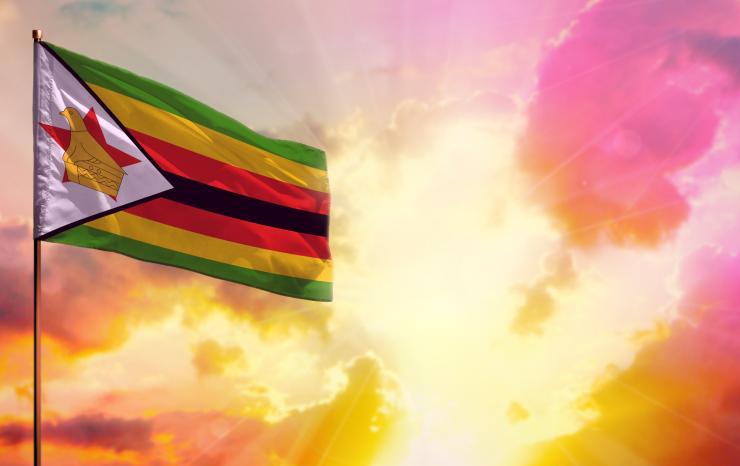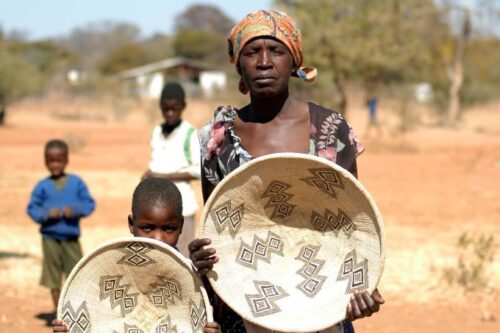Zimbabwe. Towards the General Elections.

Years of protests and violent repression. The results of the Motlanthe Commission, which called for accountability for the violence, have been disregarded. In August, the country will go to the polls
to elect its president.
On 23 August 2023, Zimbabweans will vote to elect new leaders in general and local elections. Octogenarian President Emmerson Mnangagwa of the Patriotic Front of the African Union of Zimbabwe (Zanu-PF), the political party in power since independence in 1980, faces challenger Nelson Chamisa, 45, of the newly formed Citizens Coalition for Change (CCC). In the last general elections in 2018, Chamisa narrowly lost the presidential election to Mnangagwa when he led a coalition of opposition political parties, the Movement for Democratic Change-Alliance (MDC-A).
A history of violent elections
After founding president Robert Mugabe’s mandate was abruptly terminated following a 2017 military coup that ended his 37-year rule and brought Mnangagwa to power, the 2018 elections failed to advance the democratic transition. While the pre-election period and election day itself were relatively peaceful compared to previous election rounds, thanks in part to Mnangagwa’s promises that the Second Republic would get a fresh start, the delays in counting the votes raised fears of manipulation. Protests erupted in the capital Harare on August 1 of that year and were violently repressed by the security forces, killing six civilians, and injuring many others.

Zimbabwean President Emmerson Mnangagwa and his wife campaigning for the next general elections. (Photo: president Twitter)
Following these incidents, a commission of inquiry led by former South African president Kgalema Motlanthe was set up to investigate the facts and make recommendations. In December 2018, the commission released its report, with recommendations to the government of Zimbabwe to hold the perpetrators accountable and to prevent further human rights violations and similar abuses from recurring.
The Motlanthe Commission’s recommendations echo what many civil society activists and other observers have been saying since 2000 when Zanu-PF began resorting to the use of violence and other forms of repression as its political fortunes began to decline.
After losing a constitutional referendum in February 2000 against the fledgling Movement for Democratic Change (MDC), Mugabe and his liberation war veterans embarked on the Fast Track land reform program with the intent of violently dispossessing white farmers owning
commercial businesses.

The Commission of Inquiry in Zimbabwe was led by South Africa’s former President Kgalema Motlanthe. Photo: SABC
In the subsequent parliamentary elections in June 2000, Zanu-PF lost control of the majority, and the 2002 presidential elections were marked by gross human rights violations against members of the opposition. The climax of election-related violence was reached in 2008 when Mugabe, after losing the first round of elections to the then MDC leader, the late Morgan Tsvangirai, was forced into a second round of elections. The killing of more than 400 opposition members prompted Tsvangirai to withdraw, thus prompting South Africa to facilitate a national unity government (2009-2013), comprising the ruling party and the opposition, under the auspices of the Community Development of Southern Africa (SADC) and the African Union.
Elections and economic crisis
Meanwhile, Zimbabwe’s much-acclaimed land reform has not led to food security. The World Bank ranked Zimbabwe third out of 177 countries for food price inflation between January and April 2023. In August 2022, the World Food Programme estimated that between 30 and 38 percent of the rural population suffered from food insecurity.

The World Food Programme has estimated that between 30 and 38 percent of the rural population suffers from food insecurity. Photo: Swm
Today, a combination of bad policies and corruption has already strangled the economy: commodity prices have skyrocketed while wages remain stagnant; the black-market exchange rate is almost 10 times the official rate; and the country has the highest level of inflation in the world with the local currency losing value day by day. Unemployment is rampant, even among young college graduates.
The 2023 election offers another opportunity to change the future for Zimbabweans – something the 2017 coup failed to do. (Open Photo. Flag of Zimbabwe. 123rf.com)
Webster Zambara



